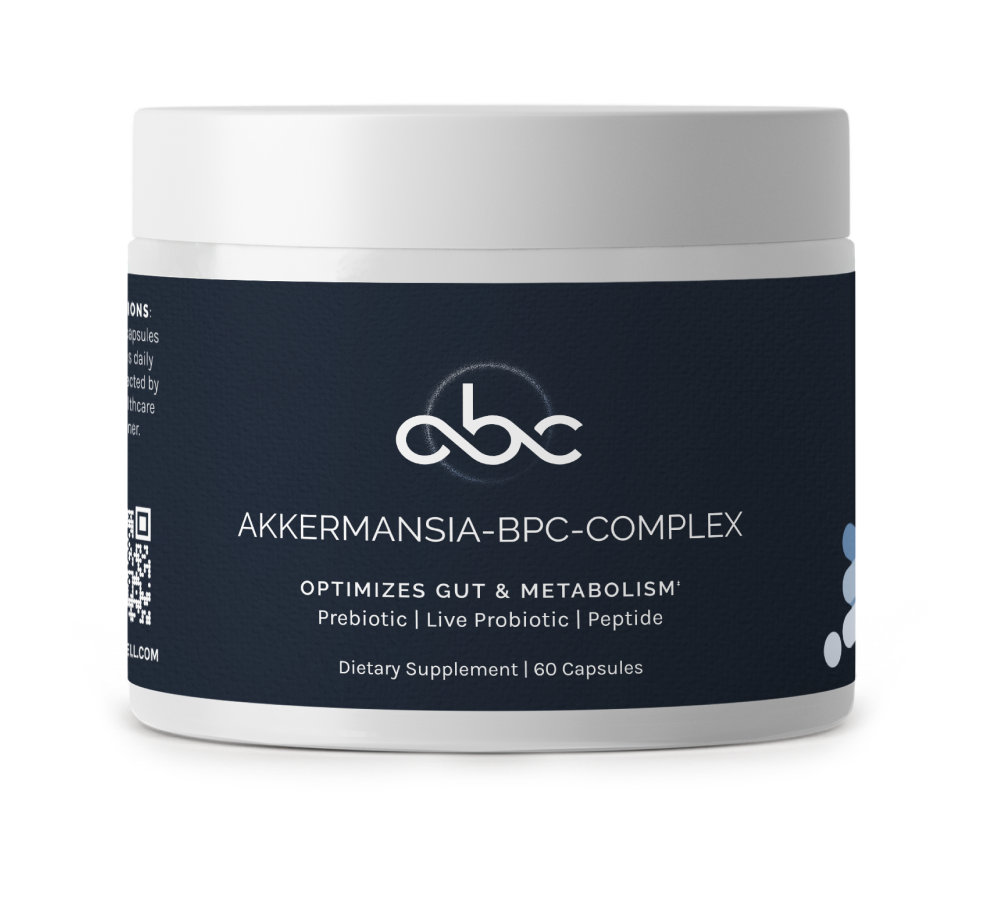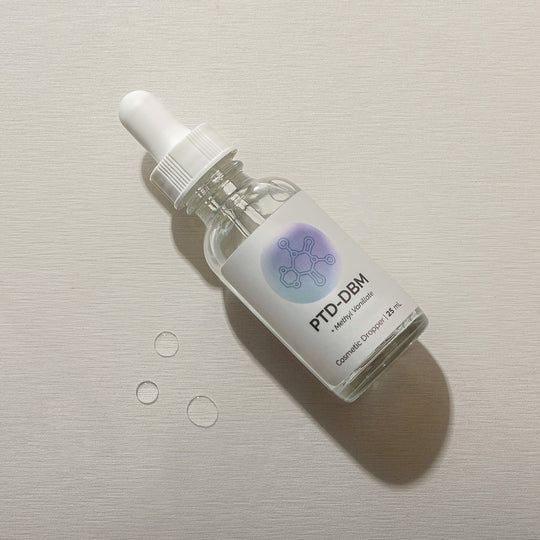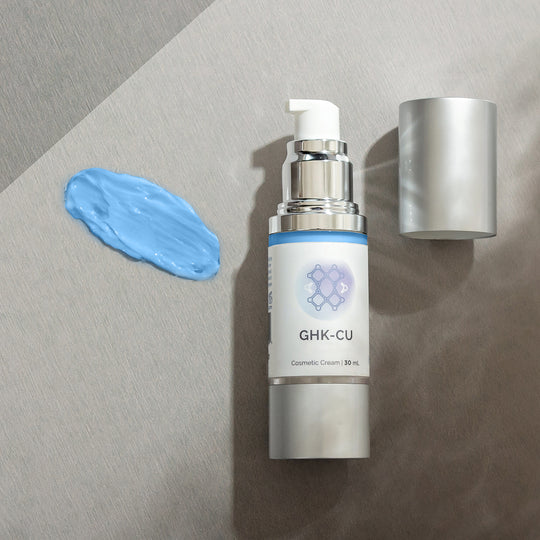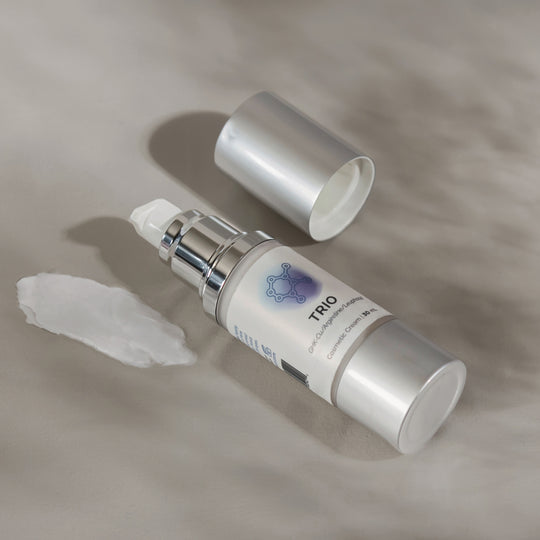ACTIVATED MAGNESIUM
Sleep, Mood & Musculoskeletal Support*
- Supports Healthy Neurotransmitter Metabolism
- Promotes Vascular Relaxation & Pliability
- Maintains Healthy Levels of Melatonin
- Aids in Healthy Levels of ATP Production
Active Ingredients: Magnesium, Malic Acid
Other Ingredients: Rice Powder, Hydroxypropyl Methycellulose, Magnesium Stearate, Silicon Dioxide, Vegetable Capsule (Hypromellose, Titanium Dioxide)
Take 2 capsules daily or as directed by your healthcare provider
Daily
2 Capsules
Akkermansia
Prebiotic | Live Probiotic*
- Supports GLP-1 Production
- Promotes Metabolic Efficiency
- Aids in Optimizing Gut Barrier Integrity
- Promotes Leaner Body Composition
Active Ingredients: Akkermansia (Live Akkermansia muciniphila), Sunfiber® Prebiotic (Galactomannan Fiber)
Other Ingredients: Vegetable Capsule (Hypromellose, Gellan Gum), Microcrystalline Cellulose, Magnesium Stearate
Take 1-2 capsules daily with water or as directed by your healthcare practitioner.
Daily
1-2 Capsules
ASHWAGANDHA
Stress Support and Mental Clarity*
- Promotes Hormonal Balance
- Supports Mental Clarity & Elevated Mood
- Facilitates An Optimal Environment For Normal Tissue Repair
- Optimizes Immune System Health
Active Ingredients: Ashwagandha, Black Pepper Extract
Other Ingredients: Vegetable Capsule (Hypromellose)
Take 2 capsules daily with water or as directed by your healthcare practitioner.
Daily
2 capsules
BPC-157 DELAYED - 250MCG
Muscle, Joint & Gut Support*
- Joint and Soft Tissue Support
- Promotes Digestive Function
- Neurological Support
- Optimizes Nitric Oxide Production
Active Ingredient: Body Protective Compound, Salcaprozate Sodium (SNAC)
Other Ingredients: Rice Powder, Microcrystalline Cellulose, Vegetable Capsule (Hypromellose, Gellan Gum)
Take 1 capsule twice daily or as directed by your healthcare practitioner.
Twice daily
1 Capsule
BPC-157 DELAYED PRO - 500MCG
Muscle, Joint & Gut Support*
- 60 Capsules
- 30 Capsules
- Joint and Soft Tissue Support
- Promotes Digestive Function
- Neurological Support
- Optimizes Nitric Oxide Production
Active Ingredient: Body Protective Compound, Salcaprozate Sodium (SNAC)
Other Ingredients: Rice Powder, Microcrystalline Cellulose, Vegetable Capsule (Hypromellose, Gellan Gum)
Take 1 capsule twice daily or as directed by your healthcare practitioner.
Twice daily
1 Capsule
BPC-157 Original - 250MCG
Muscle, Joint & Gut Support*
- Joint and Soft Tissue Support
- Promotes Digestive Function
- Neurological Support
- Optimizes Nitric Oxide Production
Active Ingredient: Body Protective Compound
Other Ingredients: Other Ingredients: Rice Powder, Microcrystalline Cellulose, Vegetable Capsule (Hypromellose)
Take 1 capsule twice daily or as directed by your healthcare practitioner.
Twice daily
1 Capsule
BPC-157 PRO TABLETS - 500MCG
Muscle, Joint & Gut Support*
- Joint and Soft Tissue Support
- Promotes Digestive Function
- Neurological Support
- Optimizes Nitric Oxide Production
Active Ingredient: Body Protective Compound, Salcaprozate Sodium (SNAC)
Other Ingredients: Calcium Carbonate, Microcrystalline Cellulose, Stearic Acid, Croscarmellose Sodium, Magnesium Stearate, Silicon Dioxide
Take 1 tablet twice daily or as directed by your healthcare practitioner.
Twice daily
1 Tablet
BPC-157 Probiotic | ABC
Peptide | Live Probiotic*
- Supports Healthy Gut Microbiota
- Aids in Optimizing Gut Barrier Integrity
- Helps Promote GLP-1 Production
- Promotes Leaner Body Composition
Active Ingredients: Akkermansia (Live Akkermansia muciniphila), Body Protective Compound 250mcg (as BPC-157 Arginate Salt), Sunfiber® Prebiotic (Galactomannan Fiber), Salcaprozate Sodium (SNAC)
Other Ingredients: Vegetable Capsule (Hypromellose, Gellan Gum), Microcrystalline Cellulose, Magnesium Stearate
Take 1-2 capsules two times daily with water or as directed by your healthcare practitioner.
Daily
1-2 Capsules
BPC-157 RAPID - 250MCG
Muscle, Joint & Gut Support*
- Joint and Soft Tissue Support
- Promotes Digestive Function
- Neurological Support
- Optimizes Nitric Oxide Production
Active Ingredient: Body Protective Compound, Salcaprozate Sodium (SNAC)
Other Ingredients: Rice Powder, Microcrystalline Cellulose, Vegetable Capsule (Hypromellose)
Take 1 capsule twice daily or as directed by your healthcare practitioner.
Twice daily
1 Capsule
BPC-157 RAPID PRO - 500MCG
Muscle, Joint & Gut Support*
- 60 Capsules
- 30 Capsules
- Joint and Soft Tissue Support
- Promotes Digestive Function
- Neurological Support
- Optimizes Nitric Oxide Production
Active Ingredient: Body Protective Compound, Salcaprozate Sodium (SNAC)
Other Ingredients: Rice Powder, Microcrystalline Cellulose, Vegetable Capsule (Hypromellose)
Take 1 capsule twice daily or as directed by your healthcare practitioner.
Twice daily
1 Capsule
BPC-157 Smart Chocolate
BPC-157 & Cognizin®*
- Supports Healthy Overall Brain Function
- Aids in Alertness, Focus and Attention
- Promotes Brain DNA Synthesis and Repair
- Maintains An Optimal Gut/Brain Axis
Body Protective Compound 250mcg (as BPC-157 Arginate Salt), Cognizin® Citicoline
Other ingredients: Cocoa Liquor, Cocoa butter, Sunflower Lecithin, Natural Cherry Flavor WONTF
Enjoy 1 smart chocolate daily or as directed by your healthcare practitioner.
Daily
1 smart chocolate
BPC-157 TABLETS - 250MCG
Muscle, Joint & Gut Support*
- Joint and Soft Tissue Support
- Promotes Digestive Function
- Neurological Support
- Optimizes Nitric Oxide Production
Active Ingredient: Body Protective Compound, Salcaprozate Sodium (SNAC)
Other Ingredients: Calcium Carbonate, Microcrystalline Cellulose, Stearic Acid, Croscarmellose Sodium, Magnesium Stearate, Silicon Dioxide
Take 1 tablet twice daily or as directed by your healthcare practitioner.
Twice daily
1 Tablet
CALM
Tranquility, Focus, and Cognitive Vitality*
- Promotes Relaxation & Stress Reduction
- Aids Improved Mood & Mood Stabilization
- Supports Neurological Health
- Supports Cognitive Performance
Active Ingredients: DHH-B (Dihydrohonokiol-B), L-TeaActive® (L-Theanine), BaCognize® (Bacopa monnieri)
Other Ingredients: Rice Powder, NuMag, NuFlow, Vegetable Capsule (Hypromellose)
Take 1 capsule as needed or as directed by your healthcare practitioner.
As needed
1 Capsule
SHOULD NOT BE TAKEN WITH ALCOHOL
CARDIO PRIME+
Advanced Cardiometabolic Support*
- Supports Vessel Health & Pliability
- Aids in Blood Pressure Regulation
- Supports Fibrinolytic Activity
- Maintains Already Healthy Cholesterol Levels
- Promotes Healthy Blood Sugar & Insulin Metabolism
Active Ingredients: Niacin, Copper, NAD3® Proprietary Blend (Wasabi Extract, Theacrine, Cuprous Niacin), Lactotripeptides, VasoDrive AP®, Citrus Bergamot Extract, CurcuPrime® Tetrahydrocurcumin, NSK-SD® Nattokinase
Other Ingredients: Microcrystalline Cellulose, Magnesium Stearate (Vegetable), Silica, Vegetable Capsule (Hypromellose). Contains soy and milk.
Take 2 capsules daily with water or as directed by your healthcare practitioner.
Daily
2 Capsules
CARDIOVASCULAR
Advanced Cardiometabolic Support*
- Supports vessel health & pliability
- Aids in blood pressure regulation
- Supports fibrinolytic activity
- Maintains already healthy cholesterol levels
- Promotes healthy blood sugar & insulin metabolism
- Cardio Prime+
- Green Tea
- CoQ10
Take 1 packet daily, in the morning on an empty stomach at least 1 hour before a meal, or as directed by your healthcare practitioner.
Daily
1 Packet
CONTROL
Glucose Metabolism & Insulin Sensitivity*
- Encourages Calorie Burn
- Promotes Leaner Body Composition
- Helps Regulate Metabolism
- Supports Healthy Blood Glucose Levels
- Assists in Preventing Weight Re-gain
- Reinforces Carbohydrate Tolerance
Active Ingredients: MitoBurn® (B-aminoisobuytric acid, L-BAIBA), Factor21® Bitter Melon Extract (Momordica charantia), Berberine HCL, GlucoVantage® (Dihydroberberine), InnoSlim® (Astragalus membranaceus and Panax notoginseng) Root Extracts, Actiponin® gynostemma pentaphyllum extract, CaloriBurn GP® Grains of Paradise seed extract
Other Ingredients: Vegetable Capsule (Hypromellose, Gellan Gum), Rice Powder, Microcrystalline Cellulose
Take 3 capsules daily or as directed by your healthcare practitioner.
Daily
3 Capsules
CoQ10
Cellular Energy Production*
- Supports Cardiovascular Health
- Boosts Antioxidant Activity
- Promotes Neurological Health
- Maintains Healthy Blood Sugar Balance
- Enhanced Cellular Energy and Physical Performance
Active Ingredients: Coenzyme Q10
Other Ingredients: Microcrystalline Cellulose, Magnesium Stearate, Silicon Dioxide, Vegetable Capsule (Hypromellose)
Take 1 capsule daily or as directed by your healthcare provider
Daily
1 Capsule
DEFEND
Foundational Combination of Vitamins A, D, & K2*
- Supports Healthy Calcium Deposition in Bones & Teeth
- Promotes Broad Immune System Activation
- Supports Healthy Levels of Oxidation within Blood Vessels
- Aids in the Metabolism of Lipids
Active Ingredients: Vitamin A, Vitamin D, Vitamin E, Vitamin K2 MK-7, AstraGin® (Astragalus membranaceus and Panax notoginseng) Root Extracts
Other Ingredients: Nuflow, Vegetable Capsule (Hypromellose)
Take 1 capsule daily or as directed by your healthcare practitioner.
Daily
1 Capsule
DEFEND PRO
Foundational Combination of Vitamins A, D, & K2*
- Supports Healthy Calcium Deposition in Bones & Teeth
- Promotes Broad Immune System Activation
- Supports Healthy Levels of Oxidation within Blood Vessels
- Aids in the Metabolism of Lipids
Active Ingredients: Vitamin A, Vitamin D, Vitamin E, Vitamin K2 MK-7, AstraGin® (Astragalus membranaceus and Panax notoginseng) Root Extracts
Other Ingredients: Nuflow, Vegetable Capsule (Hypromellose)
Take 1 capsule daily or as directed by your healthcare practitioner.
Daily
1 Capsule
DHH-B
Mood Support*
- Promotes an Overall Sense of Calm
- Helps Promote Relaxation & Reduced Nervousness
- Maintains Healthy Neurotransmitter Release (Specifically, GABA)
- Promotes Both Healthy REM & Non-REM Sleep Cycles
Active Ingredient: DHH-B (Dihydrohonokiol-B)
Other Ingredients: Cellulose, Rice Powder, Hydroxypropyl Methylcellulose, Magnesium Stearate, Silicon Dioxide, Vegetable Capsule (Hypromellose, Titanium Dioxide)
Take 1 capsule as needed or as directed by your healthcare practitioner.
As needed
1 Capsule
SHOULD NOT BE TAKEN WITH ALCOHOL.
DHH-B MAX
Mood Support*
- Promotes an Overall Sense of Calm
- Helps Promote Relaxation & Reduced Nervousness
- Maintains Healthy Neurotransmitter Release (Specifically, GABA)
- Promotes Both Healthy REM & Non-REM Sleep Cycles
Active Ingredient: DHH-B (Dihydrohonokiol-B)
Other Ingredients: Cellulose, Rice Powder, Hydroxypropyl Methylcellulose, Magnesium Stearate, Silicon Dioxide, Vegetable Capsule (Hypromellose, Titanium Dioxide)
Take 1 capsule as needed or as directed by your healthcare practitioner.
As needed
1 Capsule
SHOULD NOT BE TAKEN WITH ALCOHOL.
DIM
Hormone Support & Detoxification*
- Supports Healthy Estrogen Metabolism
- Promotes Leaner Body Composition
- Aids Liver Detoxification
- Supports Antioxidant Capacity
Active Ingredients: DIM (Diindolylmethane)
Other Ingredients: Microcrystalline Cellulose, Magnesium Stearate, Silicon Dioxide, Vegetable Capsule (Hypromellose, Titanium Dioxide)
Take 2 capsules daily with water or as directed by your healthcare practitioner.
Daily
2 Capsules
DNA PRIME
Cellular Protection & Telomere Support*
- Supports telomere length and telomerase activity
- Supports DNA repair and cellular renewal
- Promotes mitochondrial function
- Aids in the mitigation of oxidative stress
Active Ingredients: ac-11® Cat's Claw Aqueous Extract (Uncaria tomentosa), Activated BroccoRaphanin® (Broccoli concentrate from seed and myrosinase enzyme), Sulforaphane Glucosinolate (as Glucoraphanin), Buckwheat Peptides 20:1, 2-HOBA (Hobamine®), L-Ergothioneine (as MitoPrime®)
Other Ingredients: Microcrystalline Cellulose, Magnesium Stearate (Vegetable), Silica, Vegetable Capsule (Hypromellose)
Take 2 capsules daily or as directed by your healthcare practitioner.
Daily
2 Capsules
DUO
Hair Nourishment*
- Supports Follicular Proliferation & Differentiation
- Promotes Growth Factors Involved in Hair Growth & Maintenance
- Aids the Nourishment & Health of Hair Follicles
- Supports the Structure & Strength of Hair Strands
This advanced formula harnesses the power of two key ingredients: GHK-Cu and Zn-Thymulin. This physician formulated serum is fast-absorbing and aims to produce visible results in less than 30 days. Together, GHK-Cu and Zn-Thymulin work synergistically to enhance ongoing nourishment and revitalization of the scalp, promoting the visible appearance of thick, lustrous hair.
Apply evenly to affected areas of scalp once daily. Avoid contact with eyes.
Daily
Apply evenly to affected areas of scalp.
ENHANCE
Healthspan & Longevity Support*
- Promotes Longevity, Cellular Renewal & Autophagy
- Supports Heart Health & Mitochondrial Free Radicals
- Assists Cellular Detox & Optimizes Nrf2 Pathways
- Supports Stamina + Endurance & Protein Synthesis
- Maintains Lipid & Blood Sugar Regulation + Energy Production
Active Ingredients: Arginine Alpha-Ketoglutarate, Trimethylglycine, Bergamot Orange Extract, Bergamonte®, Epigallocatechin Gallate, Taxifolin, Spermidine
Other Ingredients: Vegetable Capsule (Hypromellose, Titanium Dioxide)
Take 3 capsules daily with water or as directed by your healthcare practitioner.
Daily
3 Capsules
EPICATECHIN
Cardiovascular Support & Muscle Function*
- Strength Gains
- Stamina & Endurance
- Nitric Oxide Support
- Antioxidant & Metabolic Support
- Muscle Protein Synthesis & Muscle Recovery
Active Ingredient: Epicatechin
Other Ingredients: Vegetable Capsule (Hypromellose, Titanium Dioxide)
Take 2 capsules daily with water or as directed by your healthcare practitioner.
Daily
2 Capsules
FOCUS
Breakthrough Nootropic For Everyone*
- Optimized Neurological Processing and Function
- Sustained Mental Acuity and Recall
- Short & Long Term Brain / Working Memory Support
- Blue Light Protection from Digital Devices
Active Ingredients: RhodioPrime® 6X Rhodiola - Rhodiola rosea, LuteMax2020 - Lutein and zeaxanthin, InnovaTea® - Caffeine, DynamineTM - methylliberine, TeaCrine® - Theacrine, Huperzine A
Other Ingredients: Vegetable Capsule (Hypromellose, Gellan Gum), Rice Powder, Microcrystalline Cellulose
Take 1 capsule in the morning with water or as directed by your healthcare practitioner.
As needed
1 Capsule
FOUNDATIONAL
Foundational Combination of Nutrients
- FOUNDATIONAL
- FOUNDATIONAL+
- Supports Immune Function & Immune Cell Activation
- Supports Strong Bones, Calcium Absorption & Metabolism
- Supports Cardiovascular Function
- Supports Neurological Function & Methylation Optimization
- Defend / Defend Pro
- Activated Magnesium
- Methylated B-Complex
- Omega 5x
Take 1 packet daily, with a meal, or as directed by your healthcare practitioner.
Daily
1 Packet
GHK-CU
Skin Hydration & Nourishment*
- Aids Reduced Muscle Activity Leading to Wrinkles & Fine Lines
- Supports Healthy Levels of Elastin, Proteoglycans, & Glycosaminoglycans
- Promotes Healthy Collagen Synthesis
GHK-Cu was formulated to help provide a reduced appearance of wrinkles and fine lines. GHK-Cu works into the skin easily, with a smooth finish on the skin.
Apply 4 pumps to face (or desired area) once daily. Avoid contact with eyes.
Daily
4 Pumps
GI PRIME
Comprehensive Pre/Pro/Post Biotic Formula*
- Supports a Healthy Gut Microbiota
- Strengthens Immune System
- Aids in Optimizing Gut Barrier Integrity
- Modulates Immune Response in the Gut via Activation of pDC’s
- Supports Digestive Function & Regularity
Active Ingredients: Dried Yeast Fermentate (EpiCor®) (Saccharomyces cerevisiae), Lactococcus lactis strain Plasma (IMMUSE™ Paraprobiotic), ButyraGen™, Spore Probiotic Blend - Bacillus Coagulans (SNZ 1969), Bacillus Subtillus (SNZ 1972), Bacillus Clausii (SNZ 1971)
Other Ingredients: Vegetable Capsule (Hypromellose), Rice Powder, Microcrystalline Cellulose, Magnesium Stearate, Silicon Dioxide.
Take 3 capsules daily or as directed by your healthcare practitioner.
Daily
3 Capsules
GLYNAC
Elevate Health through Glycine & NAC*
- Supports Antioxidant Capacity
- Supports Glutathione Synthesis
- Promotes Mitochondrial Function
- Aids in Nutrient Sensing
Active Ingredients: Glycine, N-Acetyl L-Cysteine
Other Ingredients: Vegetable Capsule (Hypromellose), Rice Powder, Magnesium Stearate, Silicon Dioxide.
Take 2 capsules with water daily or as directed by your healthcare practitioner.
Daily
2 Capsules
HRT SUPPORT
Hormone Support & Detoxification*
- HRT SUPPORT
- HRT SUPPORT+
- Supports Sex Hormone Metabolism Through Phase 1 Detoxification
- Supports Immune Function & Immune Cell Activation
- Supports Strong Bones, Calcium Absorption & Metabolism
- Supports Cardiovascular Function
- Supports Neurological Function & Methylation Optimization
- Diindolylmethane
- Defend / Defend Pro
- Activated Magnesium
- Methylated B-Complex
- Omega 5X
Take 1 packet daily, with a meal, or as directed by your healthcare practitioner.
Daily
1 Packet
IGNIGHT
The Key to Optimal Sleep & Metabolic Health*
- Increases Restorative Sleep
- Supports High Quality Sleep
- Encourages Calorie Burn
- Promotes Leaner Body Composition
Active Ingredients: Sleeproot ValerianTM - Valeriana officialis, Shoden® Ashwagandha, Dihydrohonokiol-B (DHH-B), CaloriBurn GP®
Other Ingredients: Vegetable Capsule (Hypromellose), Rice Powder, Magnesium Stearate, Silicon Dioxide.
Take 1 capsule 30 mins before bed or as directed by your healthcare practitioner.
30 Minutes before bed as needed
1 Capsule
SHOULD NOT BE TAKEN WITH ALCOHOL.
Immune Shield
- Supports Immune Function & Immune Cell Activation
- Modulates Immune Response in the Gut via Activation of pDC's
- Aids in Optimizing Gut Barrier Integrity
- Supports Heart Health & Mitochondrial Free Radicals
- Defend Pro
- GI Prime
- Enhance
Take 1 packet daily, with a meal, or as directed by your healthcare practitioner.
Daily
1 Packet
InfiniAge™
OMICm Age & Pace of Aging Optimization*
- Aids Antioxidant Capacity
- Promotes Cholesterol Profiling
- Optimizes Nutrient Sensing Pathways
- Optimizes Mitochondrial Function
- Supports Cognitive Function & Brain Aging
Active Ingredients: Zinc, Calcium, N-Acetyl L-Cyteine, Lutein, Eclipse Bio-Age Complex (Calcium alpha-ketoglutarate, Uridine monophosphate, L-Ergothioneine, Chokeberry Extract)
Other Ingredients: Magnesium Stearate, Silicon Dioxide, Vegetable Capsule (Hypromellose)
Take 2 capsules daily or as directed by your healthcare practitioner.
Daily
2 Capsules
LONGEVITY
Cellular Protection & Telomere Support*
- LONGEVITY
- LONGEVITY+
- Promotes Longevity & Cellular Renewal
- Supports Stamina/Endurance & Protein Synthesis
- Supports Heart Health & Mitochondrial Function
- Maintains Lipid metabolism & Energy Production
- NMN
- Senolytic
- Senescent Regulator
- DNA Prime
- Enhance
Take 1 packet daily, in the morning on an empty stomach at least 1 hour before a meal, or as directed by your healthcare practitioner.
Daily
1 Packet
METABOLIC ACTIVATOR
Glucose Metabolism & Insulin Sensitivity*
- Optimized Metabolism, Microbiome & GLP-1 Support
- Body Composition & Conversion of White to Brown Fat
- Insulin Sensitivity Support & FGF21 Activation
- Metabolic, Blood Sugar & AMPK Support
- Promotes Beta Cell Function
- Senolytic
- Control
- GI Prime
Take 1 packet daily, with a meal, or as directed by your healthcare practitioner.
Daily
1 Packet
METHYLATED B-COMPLEX
High Potency, Comprehensive B-Complex*
- Supports Healthy Methylation & Carbohydrate Metabolism
- Promotes Nervous System, Immune & Adrenal Health
- Supports Neurotransmitter Production For A Positive Mood
- Protects Against Stress-Induced Nutrient Depletion
Active Ingredients: Thiamine (Vitamin B1), Riboflavin (Vitamin B2), Niacin, Vitamin B6, Folate, Vitamin B12, Biotin, Pantothenic Acid, Choline Bitartrate, Inositol
Other Ingredients: Hydroxypropyl Methycellulose, Magnesium Stearate, Silicon Dioxide, Vegetable Capsule (Hypromellose)
Take 1 capsule daily or as directed by your healthcare practitioner.
Daily
1 Capsule
NMN
The Vanguard of Anti-Aging Science*
- Supports NAD+ Production
- Promotes Longevity & Healthy Aging
- Helps Maintain Healthy DNA & Epigenetic Function
Active Ingredients: Nicotinamide Mononucleotide, Resveratrol, Pterostilbene
Other Ingredients: Hypromellose, Titanium Dioxide
Take 2 capsules daily with water or as directed by your healthcare practitioner.
Daily
2 Capsules
OMEGA 5x
Unlock the Therapeutic Potential of Omega-3*
- Contains Bioavailability Enhancement of Up to 5X vs. Conventional Fish Oil
- Supports Various Aspects of Cardiometabolic Health
- Facilitates Utilization of All Omega Fatty Acids in the Diet
- Supports Healthy Levels of Inflammation throughout the Body
Active Ingredients: Omega-3 Lysine Complex, SmartPrime-Om™ Complex, AstraGin® Root Extracts
Other Ingredients: Magnesium Stearate, Silica, Hypromellose. Contains Fish.
Take 2 capsules with water daily or as directed by your healthcare practitioner.
Daily
2 Capsules
Contains fish
PTD-DBM
Hair Restoration and Growth*
- Supports the Wnt/β-catenin Signaling Pathway
- Supports Follicular Proliferation & Differentiation
- Aids the Integrity & Strength of the Hair Structure Itself
- Promotes Growth Factors Involved in Hair Follicle Development
PTD-DBM, a breakthrough peptide, is combined with Methyl Vanillate, a natural compound derived from vanillin, both of which are vital for optimizing the environment for hair growth. With their powerful mechanisms of action and easy, fast-absorbing topical application, PTD-DBM and Methyl Vanillate offer the ideal solution for those seeking novel, effective ways to jumpstart their hair follicles and begin the journey toward visibly improving the appearance of full, thick hair. This physician formulated serum is fast-absorbing and aims to produce visible results in less than 30 days.
Apply evenly to affected areas of scalp once daily. Avoid contact with eyes.
Daily
As needed.
Avoid contact with eyes.
REPAIR & RECOVERY
Muscle, Joint, Gut-Brain Axis & Digestive Support*
- REPAIR & RECOVERY
- REPAIR & RECOVERY+
- Muscle Protein Synthesis & Recovery
- Strength Gains & Mitochondrial Neogenesis
- Mucosal Barrier Support & AMPK Activation
- Body Composition Support & Cortisol Regulation
- BPC-157
- Strength
- Ashwagandha
Take 1 packet daily with a meal, or as directed by your healthcare practitioner.
Daily
1 Packet
SENESCENT REGULATOR
Rejuvenation and Metabolic Regulation*
- Aids Body’s Process of Reusing Old & Damaged Cell Parts
- Supports Healthy mTOR Inhibition & AMPK Expression
- Promotes Healthy, Youthful Cellular Function
Active Ingredients: TumiPure Gold® Turmeric Extract, CurcuPrime® Tetrahydrocurcumin, Luteolin, Resveratrol, Pterostilbene
Other Ingredients: Vegetable Capsule (Hypromellose)
Take 2 capsules daily or as directed by your healthcare practitioner.
Daily
2 Capsules
SENOLYTIC
Optimize Cellular Aging*
- Supports Healthy Aging & Longevity
- Optimizes Neurological Processing & Function
- Supports SIRT1 & AMPK Activation
- Helps Maintain Healthy Levels of Senescent Cells
Active Ingredients: Fisetin, Querciten, Resveratrol, Pterostilbene, Curcumin
Other Ingredients: Hypromellose, Titanium Dioxide
Take 1 capsule daily with water or as directed by your healthcare practitioner.
Daily
1 Capsule
STRENGTH
Support For Muscle Mass & Tissue Quality*
- Muscle Protein Synthesis & Muscle Recovery
- Strength Gains
- Stamina & Endurance
- Body Composition
- Lipid Metabolism
- Enhanced Blood Flow
Active Ingredients: Calcium, myHMB® - B-Hydroxy B-Methylbutyrate, Epicatechin, PurpleForce® Purple Tea Leaf Extract, AstraGin® Root Extracts, Senactiv® Root Extracts
Other Ingredients: Rice Powder, Microcrystalline Cellulose, Hypromellose
Take 3 capsules daily with water or as directed by your healthcare practitioner.
Daily
3 Capsules
THYROID OPTIMIZER
Comprehensive Hormone Support*
- Thyroid Optimizer
- Thyroid Optimizer+
- Supports Healthy Thyroid Function
- Aids in the Synthesis of Thyroid Hormones
- Supports Cellular Sensitivity to Thyroid Hormones
- Helps Support Effective & Efficient Conversion of T4 to T3
- Promotes Healthy Antioxidant Capacity
- Thyroid Support / Thyroid Support+
- Ashwagandha
- Green Tea
Take 1 packet daily, in the morning on an empty stomach at least 1 hour before a meal, or as directed by your healthcare practitioner.
Daily
1 Packet
THYROID SUPPORT
Comprehensive Hormone Support*
- Supports Healthy Thyroid Function
- Aids in the Synthesis of Thyroid Hormones
- Supports Cellular Sensitivity to Thyroid Hormones
- Helps Support Effective and Efficient Conversion of T4 to T3
- Promotes a Healthy Inflammatory and Antioxidant Response
Active Ingredients: Selenium, Iodine, Vitamin K2, InfiniWell Blend (Hydroxytyrosol Acetate, Guggulsterone, Theobromine)
Other Ingredients: Microcrystalline Cellulose, Maltodextrin, Magnesium Stearate, Dicalcium Phosphate
Take 2 tablets in the morning or as directed by your healthcare practitioner.
Daily in the morning
2 Tablets
THYROID SUPPORT+
Comprehensive Hormone Support*
- Supports Healthy Thyroid Function
- Aids in the Synthesis of Thyroid Hormones
- Supports Cellular Sensitivity to Thyroid Hormones
- Helps Support Effective and Efficient Conversion of T4 to T3
- Promotes a Healthy Inflammatory and Antioxidant Response
Active Ingredients: Selenium, Iodine, Vitamin K2, Guggulsterone E-Z, Diiodo-L-Thyronine, InfiniWell Blend (Hydroxytyrosol Acetate, Theobromine)
Other Ingredients: Microcrystalline Cellulose, Maltodextrin, Magnesium Stearate, Dicalcium Phosphate
Take 2 tablets in the morning or as directed by your healthcare practitioner.
Daily in the morning
2 Tablets
TRIO
Synergistic Solution for Facial Wrinkling*
- Aids Reduced Muscle Activity Leading to Wrinkles & Fine Lines
- Supports Healthy Levels of Moisture & Hydration
- Supports Healthy Collagen & Elastin Production
The InfiniWell Trio cosmetic has been shown to work synergistically to reduce the appearance of the depth of wrinkles. Trio Cosmetic easily works into the skin, and goes on skin with a smooth finish.
Apply 4 pumps to face (or desired area) once daily. Avoid contact with eyes.
Daily
4 Pumps
Avoid contact with eyes.
Skin & Hair FAQs
-
What are peptides?
Peptides are tiny chains of amino acids, and amino acids are the core components of proteins like collagen, elastin, and keratin. Because peptides are small fragments of proteins, the body can more easily absorb them.Peptides are vital to the body's many processes. For the skin, they help boost collagen production to keep skin tight, smooth, and younger-looking. For the hair, meanwhile, they strengthen the hair follicles to boost hair growth and improve scalp health.
Aside from skin renewal and hair growth, peptides benefits also include:
Muscle growth and repair
- Increase muscle mass and strength
- Cut down recovery time after workouts
Immune function
- Create and activate white blood cells, which help protect the body from illness and infections
Cognitive function
- Promote neuroplasticity
- Improve memory and focus
- Potentially help treat neurodegenerative conditions
Hormone production
- Regulate various hormones, including those responsible for insulin production
Sleep quality
- Regulate sleep patterns
- Promote deeper, more restful sleep
Energy production and fat loss
- Kickstart the body's metabolism
- Help break down fats
Joint and cartilage health
- Repair tissue
- Help ease pain linked to joint problems or conditions like arthritis
-
Are peptides good for hair?
Yes, peptides can be good for the hair. Peptides for hair growth strengthen hair strands, improve scalp health, and boost blood circulation to the hair follicles, which can increase hair density and thickness. -
Are peptides better than minoxidil?
Peptides are natural molecules that support hair growth and scalp health, while minoxidil is a synthetic drug originally developed for high blood pressure but now widely used as a topical treatment for hair loss. While effective, minoxidil can cause side effects like scalp itching and dryness.Which of these hair growth solutions is better depends on your goals:
- Minoxidil is FDA-approved for hair regrowth, particularly for individuals with hereditary hair loss, but may have side effects.
- Peptides offer a natural way to improve scalp health and address hair thinning without the side effects of synthetic treatments.
-
What is a peptide serum?
A peptide serum is a skincare product designed to deliver peptides directly to the skin. Hair growth peptides also come in serum form. -
What does a peptide serum do?
Peptide serums penetrate the skin's surface and signal cells to produce more collagen and elastin. This helps reduce wrinkles and fine lines, smooths skin texture, repairs the skin barrier, and boosts the skin's natural healing processes to slow down skin aging. -
Do peptides cause hair loss?
No, they don't. In fact, they're used in hair growth products to help prevent hair thinning and encourage the growth of healthier, stronger hair. Zinc thymulin, for example, is a naturally occurring peptide hormone that can boost hair growth. -
What are the side effects of peptide hair serum?
Peptides are usually well-tolerated, but some users may experience mild scalp irritation or redness. Although these side effects are temporary, do a patch test before applying hair growth peptides to prevent adverse reactions. -
What is the disadvantage of peptides?
Peptides work gradually, so the effects may take time to show. Also, they may be less effective for severe skin conditions or hair loss. -
What happens if you stop using peptides?
Once you stop, benefits like skin tightening or hair regrowth may gradually fade, eventually returning to the state your skin or hair was before you started using peptide skin care products or peptides for hair growth. -
At what age should I use peptide serum?
Peptides in skincare and hair growth products benefit adults at any age, but they're often recommended in your late 20s or early 30s. Starting early can help maintain skin elasticity and promote healthy hair growth before aging skin or hair thinning becomes noticeable. -
What do peptides do for my skin?
Peptides in skincare, such as peptide face cream, boost collagen and elastin production. They help reduce fine lines and wrinkles, making your skin look firmer and younger-looking. Peptides also help remove dead skin cells, giving you a smoother, even-toned complexion.Collagen peptides for skin also have anti-aging properties. They can help lift sagging skin, making them a popular choice in anti-aging skincare products.
-
Which peptide is best for skin?
Research suggests that Palmitoyl Pentapeptide-4, which boosts collagen production, and Acetyl Hexapeptide-8, which reduces wrinkles, are among the best peptides for skin. Copper peptides can also help promote healing. -
Are peptides better than retinol?
Peptides and retinol serve different skincare purposes. Retinol is a powerful anti-aging ingredient that helps reduce wrinkles and improve skin texture. Peptides, meanwhile, are gentler and focus on collagen building and skin repair.Some people prefer the soothing properties of peptides for skin tightening (although their effects can be more gradual versus retinol), while others use both in their skincare routine.
-
Is it OK to mix peptides and retinol?
Yes, it is usually safe to use peptides and retinol together in your skincare routine. -
What is the best peptide moisturizer?
The best peptide moisturizer is one that targets your specific skin concerns like wrinkles, fine lines, or sagging skin. Look for moisturizers with collagen-boosting and antimicrobial peptides to help improve skin elasticity and strengthen the skin barrier. -
Are peptides better than hyaluronic acid?
Hyaluronic acid is a hydrating agent, while peptides focus on collagen production and skin repair. They serve complementary roles in skincare—hyaluronic acid for immediate hydration and skin plumping, peptides to help reduce wrinkles and keep the skin firm. -
What not to mix with peptides?
Avoid mixing peptides with strong acids like alpha hydroxy acids (AHAs) or beta hydroxy acids (BHAs), as these can reduce the effectiveness of peptides. Also, some peptides may not work well with vitamin C in its active form (ascorbic acid), as the two can counteract each other's benefits. -
Should I use peptides or vitamin C?
Peptides and vitamin C offer different benefits for the skin. Vitamin C is an antioxidant that brightens the skin and reduces hyperpigmentation, while peptides boost collagen production and help promote skin repair. Many people use both in their skincare routine to take advantage of each's benefits, either on alternate days or different times of the day.












